Mitsotakis: The fact that we are talking with Erdogan does not mean we agree
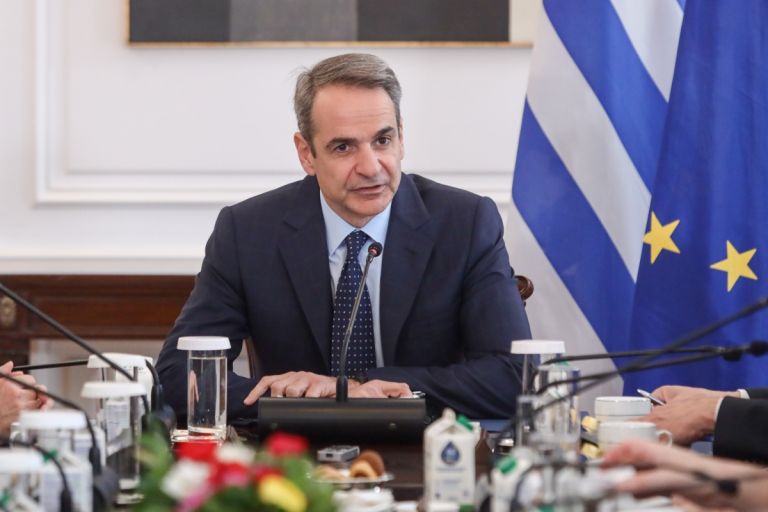
Πηγή Φωτογραφίας: Eurokinissi (Αρχείου)//Mitsotakis: The fact that we are talking with Erdogan does not mean we agree – Great interest from international investors in Greece
In his Sunday post, Kyriakos Mitsotakis referred to the contacts he had with expatriates in New York during his visit for the UN General Assembly, emphasizing the need they expressed to be able to vote by mail in national elections. As the Prime Minister said, he will “push” the process forward, believing that no party will oppose it.
He also focused on his meetings with investors and Turkish President Tayyip Erdoğan, stressing that “just because we are talking does not mean we agree on everything” and clarifying that “Greece does not even enter into discussions about recognizing the pseudo-state, nor do we ‘weigh’ issues of sovereignty and sovereign rights.”
“Good morning to everyone! Returning from New York, where I was for the UN General Assembly, I want to share a few things with you, starting with the unwavering love of the diaspora for our homeland. Speaking with them, they expressed their joy that they were able – for the first time – to vote by mail, even if only for the European elections. They want, and we want, to have this option for the national ballot as well. I am confident, as I told them, that after the successful organization of the process, no party will refuse – because 200 votes are needed in Parliament – to grant the right to those living abroad to vote without having to visit the Embassy or Consulate or return to Greece, as was the case until now.
I note the great interest of international investors, companies, organizations, and banks in Greece, following the recovery of our investment grade. I invited them to take advantage of the opportunities that exist in a country like ours, with political stability, a broad reform agenda, dynamic growth with fiscal responsibility, and rapid absorption of Recovery Fund resources. Due to all these characteristics, we have seen what was unthinkable a few years ago: the Greek 5-year bond trading in the markets with a lower interest rate than the corresponding French one – 2.44% for the Greek bond, 2.50% for the French bond, while we have dramatically reduced the yield spread with the German 10-year bond.
I also consider it significant that two issues of Greek interest – maritime security and the protection of culture as integral elements of sustainable development – were included in the Pact for the Future approved by the UN Summit. Greece, as a member of the Security Council, will continue to play an active role in negotiating the fight against climate change, which is closely linked to sustainable development, peace, and security.
And I conclude the chapter on the USA with the meeting I had with President Erdoğan, the 6th within a year. I reiterate that the fact that we are talking does not mean we agree on everything. Greece does not even enter into discussions about recognizing the pseudo-state, nor do we ‘weigh’ issues of sovereignty and sovereign rights. We agreed on closer cooperation on migration and on a new meeting of the High-Level Cooperation Council in early 2025.
I may have been in New York, but that doesn’t mean I don’t have news to share about government work, as the government’s activity never stops! We are solving an important social issue. Workers who become eligible for disability pensions will now be able to receive their pension without having to stop working, as was the case until now. In other words, the dilemma “work or state support” is coming to an end. The relevant provision was included in the Health Ministry bill for the personal doctor for every citizen, free pediatrician visits, and strong financial incentives for young doctors.
The strengthening of primary healthcare is at the heart of our reform work. With the bill put up for consultation this week, the number of doctors who can become Personal Doctors will significantly increase, allowing every citizen to register for free with a doctor in their area.
It should be noted that the Personal Doctor is a free service for all citizens, who gain a personal health advisor for health care, prevention, diagnosis, treatment, and guidance on serious health issues. It is the citizen’s first contact with the health system and is responsible for prevention, examinations, updating the electronic personal health file, prescribing medications, and referring patients to specialists.
Precisely because we believe in the institution of the Personal Doctor, for the first time, there will be a financial incentive of 40,000 euros (gross) for young doctors who choose in 2025 to train in the specialties of either General/Family Medicine or Internal Medicine. At the same time, always focusing on reducing inequalities in access to healthcare, we are establishing the Personal Pediatrician. In the first phase, approximately 530,000 children will have free access for the first time. The bill is complemented by the establishment of 7 University Health Centers, one in each Medical School/Department of the country, where faculty members will serve. These centers will operate Telemedicine Stations, and within the framework of the Telemedicine Network, there will be 3,500 home care points across the country. Thus, wherever patients reside, they will be able to receive home care with 24-hour uninterrupted medical monitoring.
I continue now with another bill submitted to Parliament, this one from the Ministry of Interior for improving the operation of Municipalities and Regions. With it, debtors will be able to settle their debts to Municipalities or their legal entities in up to 60 installments or through out-of-court settlement, while the most vulnerable will be exempted from surcharges by up to 95%. Additionally, local governments will receive 200 million euros in 2024 to cover their operational expenses and overdue liabilities, while I remind you that from 2025, the financing of Municipalities and Regions will increase by 53 million euros annually.
Two other important issues regulated by the bill: citizens will have access to public documents, with the incorporation of the relevant Tromsø Convention of the Council of Europe, which means more transparency in the actions of the administration. And finally, fines for the unauthorized use of public spaces will increase. Pedestrians and especially people with disabilities should not and must not be hindered in their movement.
I move on to some good news, as the agreement between Greece and Cyprus for the Cyprus-Crete electrical interconnection, a 2 billion euro project of strategic importance for Cyprus, Greece, and the entire European Union, has been finalized. Not only will it connect Cyprus to the European electricity grid, ensuring its energy security and lower electricity costs, but it will also promote Greece’s goal of becoming a corridor for the transfer of clean energy. Increasing network interconnections between European countries is a crucial factor in promoting the green transition. The negotiations were time-consuming and painful, as expected for such large and complex investments, but we were able to overcome the thorny issues so that the famous Cable could be set in motion, with France also involved in its implementation.
Staying on energy, I can tell you that the European Commission approved funding for the “Alexandroupolis Independent Natural Gas System” project with 202 million euros through the NSRF. The LNG Terminal in Alexandroupolis is expected to start operations on October 1st. The Commission’s decision acknowledges the importance of this project, which will strengthen Greece’s role and prospects as a hub for energy transfer in the wider region, as well as a source for the country’s energy supply with natural gas.
A fair Greece, which citizens – rightly – demand, also means that no one is above the law! Ample time has been given to the Panhellenic Taxi Federation to collect and distribute the special signage informing customers that accepting payments via POS is mandatory. Refusal practically means violating the provisions of the law. Taxi professionals must comply with their obligation within the next five weeks to collect – at no cost to themselves – the special signage and affix it in a visible location in the vehicle, as is the case in many other European countries! We cannot want to become Europe à la carte. Those who do not comply within this time will be fined 1,000 euros.
The implementation of the AEGIS program continues at a rapid pace. A few days ago, the contract was signed for 414 new fire trucks, covering all operational needs of the Fire Service. Of these, 160 will be delivered before the next fire season starts, and by next August, the total will reach 235. Of course, there will be an official review of this year’s performance, but we can already point out that in the most difficult fire-meteorological conditions of the last 40 years, we dealt with 4,500 fires, and 24% fewer hectares were burned than the 20-year average.
Consistent with our commitment to lower taxes, this week I intervened to correct an oversight that rightly caused reactions. We abolished the tax on boats up to seven meters long, given that these boats are not used for recreational purposes, nor are they associated with luxurious living to be taxed. On the contrary, they are mainly used for amateur fishing. The beneficiaries of this regulation are estimated to be in the tens of thousands. This is a regulation with retroactive effect, and those small boat owners who have already paid the tax will have it refunded.
I conclude with the honorific invitation for Greece to the recent G7 Ministers of Culture Summit in Naples. It is the first time our country was invited to participate in this Summit, alongside two economic superpowers, Brazil and India! It may be known, but it is important when recognized at such a level what the host of the Summit, the Italian Minister of Culture, said: that the entire European structure and the structure of Western civilization are founded on Greece.
I hope you found something of interest in this review. We’ll meet again next Sunday!”
Διαβάστε όλες τις τελευταίες Ειδήσεις από την Ελλάδα και τον Κόσμο






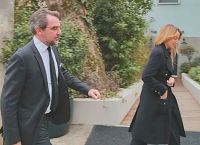





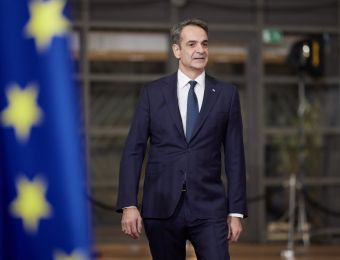


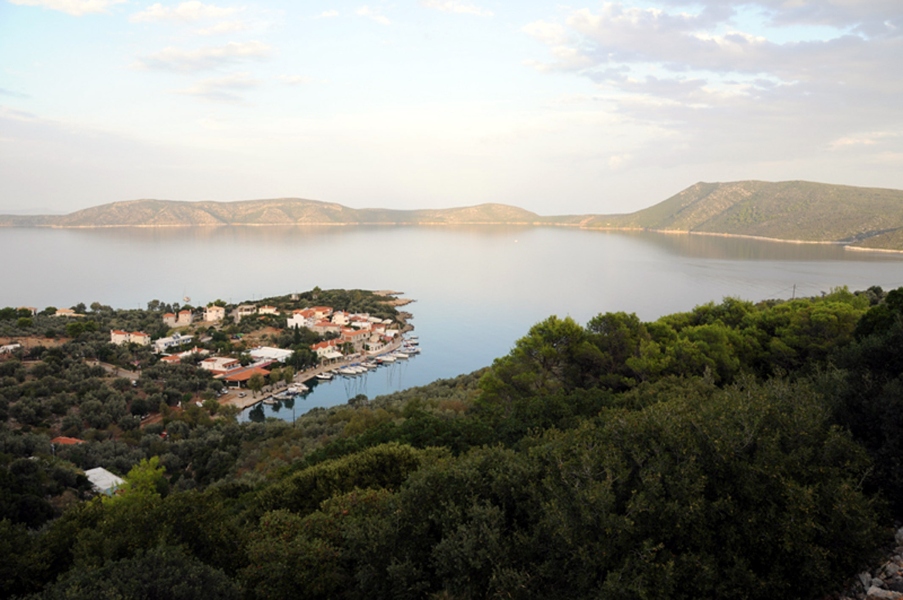
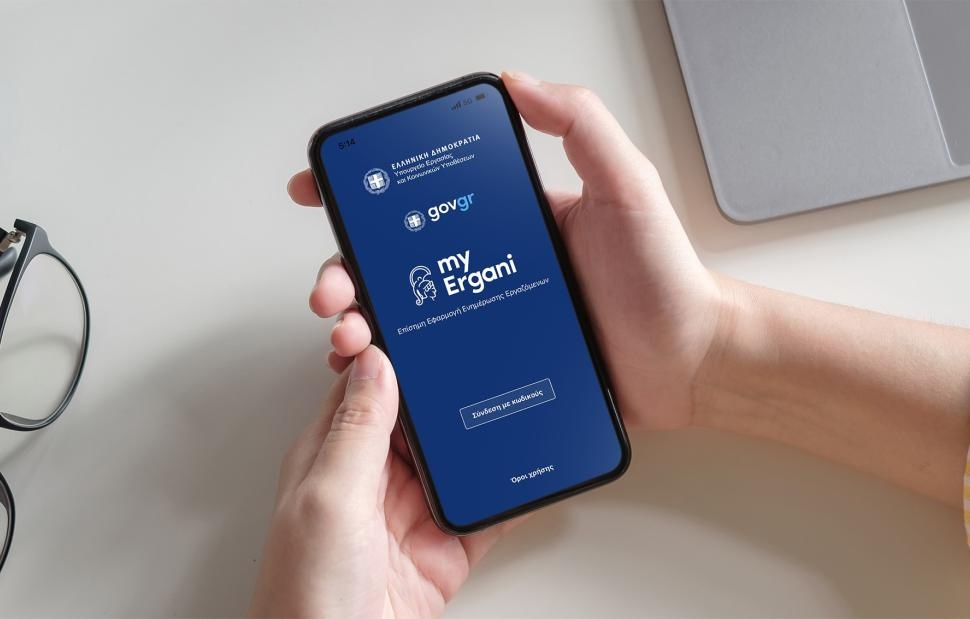
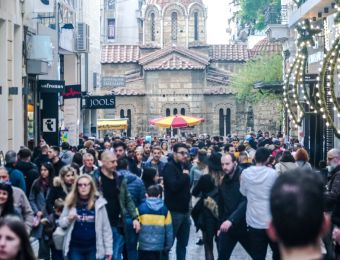
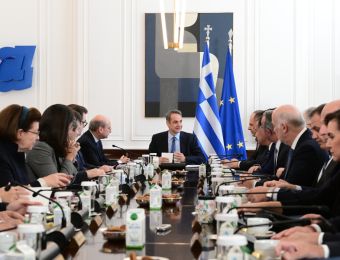

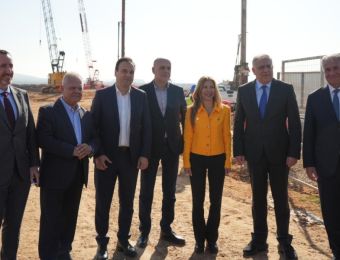
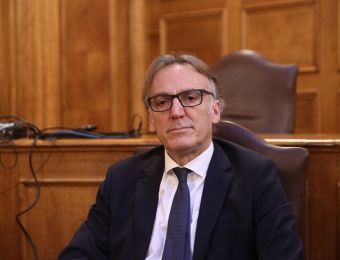
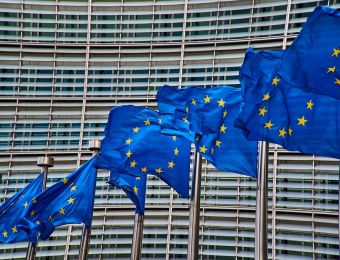






Το σχόλιο σας